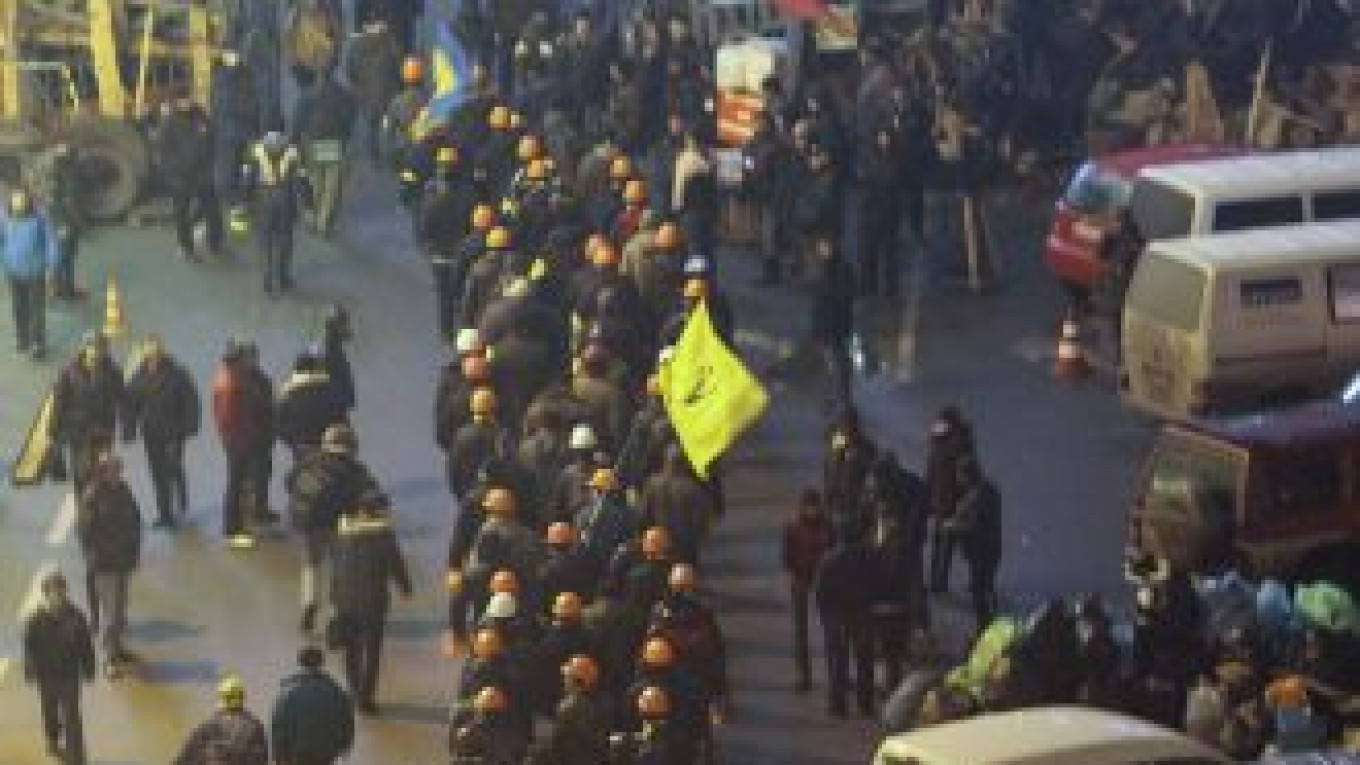The U.S. is open to imposing sanctions and visa restrictions should Ukrainian authorities violently quash anti-government protests in the ex-Soviet nation, a senior U.S. diplomat said Wednesday.
Testifying at a Senate Foreign Relations Committee hearing, State Department official Victoria Nuland was asked by the committee's chairman, Senator Bob Menendez, whether the U.S. administration "remains open" to sanctions and visa restrictions in response to violence against peaceful protesters in Ukraine.
"All tools of government are on the table, including those," Nuland, the U.S. Assistant Secretary of State for European and Eurasian Affairs, responded.
Last Tuesday, the Senate passed a resolution calling upon the President and Congress to consider applying targeted sanctions against individuals, should the violence against peaceful protestors continue in Ukraine.
Mass street protests in central Kiev have been ongoing since Ukraine stunned the European Union on Nov. 21 by halting a long-expected association agreement to strengthen political and trade ties with the bloc. Ukrainian President Viktor Yanukovych opted instead for stronger ties with Moscow.
The protests took a more radical turn after riot police violently cleared downtown Kiev’s Maidan on Nov. 30.
On Wednesday, a Ukrainian court banned rallies in the center of the city, raising fears that the government was preparing to tear down a large protest encampment that has been the epicenter of anti-government protests for weeks.
The Kiev court upheld a request by city authorities to ban large gatherings in the center of the capital until March 8. The ruling was dated Jan. 8 but only published Wednesday.
Opposition leaders saw the ruling as a sign that authorities were preparing to use force to disperse protesters on the Maidan, where several thousand people were gathered.
The U.S. and its EU allies have accused the Yanukovych government of going against the will of the Ukrainian people with the shift toward Russia, which provided Ukraine with a $15 billion bailout package last month to stabilize Kiev's finances.
In testimony prepared for Wednesday's hearing, Nuland said the Ukrainian protesters "want to live in a country where their government truly represents the wishes of the people and where they can safely exercise their rights without the fear of oppression."
She also criticized acts of violence carried out by protesters, but said Washington has told Ukraine's government publicly and privately that the U.S. will "consider a broad range of tools" if "those in positions of authority in Ukraine employ or encourage violence against their own citizens."
Russia has repeatedly criticized what it describes as outside interference in the standoff between Ukrainian authorities and protesters.
Officials in Europe and the U.S., meanwhile, have accused Moscow of using economic levers to pressure Kiev into closer integration with its ex-Soviet neighbor — a charge Russian officials have denied.
Material from The Associated Press is included in this report.
A Message from The Moscow Times:
Dear readers,
We are facing unprecedented challenges. Russia's Prosecutor General's Office has designated The Moscow Times as an "undesirable" organization, criminalizing our work and putting our staff at risk of prosecution. This follows our earlier unjust labeling as a "foreign agent."
These actions are direct attempts to silence independent journalism in Russia. The authorities claim our work "discredits the decisions of the Russian leadership." We see things differently: we strive to provide accurate, unbiased reporting on Russia.
We, the journalists of The Moscow Times, refuse to be silenced. But to continue our work, we need your help.
Your support, no matter how small, makes a world of difference. If you can, please support us monthly starting from just $2. It's quick to set up, and every contribution makes a significant impact.
By supporting The Moscow Times, you're defending open, independent journalism in the face of repression. Thank you for standing with us.
Remind me later.






